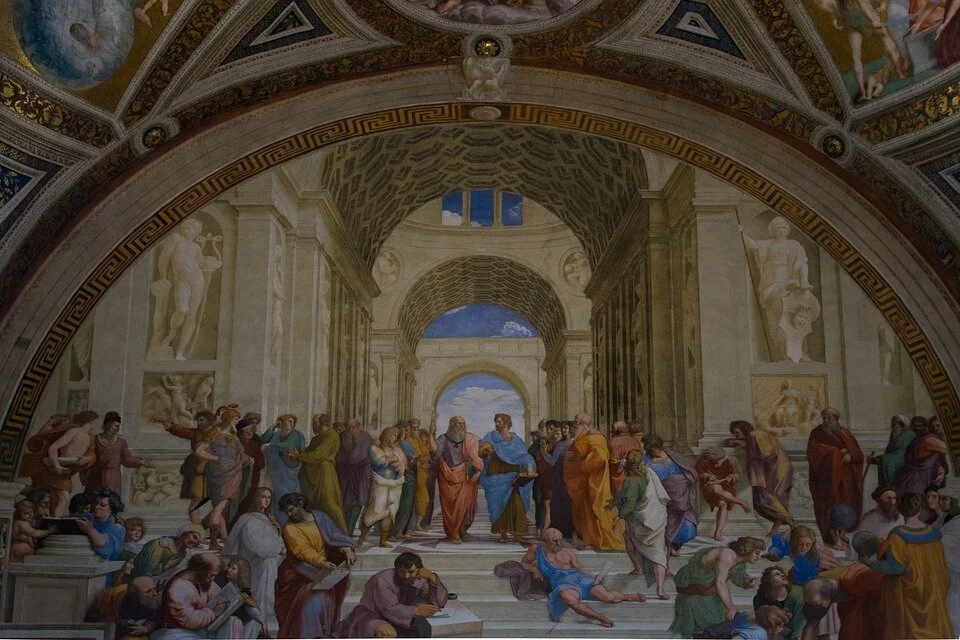It is that time of the year – work is starting to pick up and school is back in session. To mark the beginning of a new academic year, this month’s round up of news focuses on current events regarding arts education.
TBT: Dance Through the Lens of Tech
In the News: July 2022
July has been a whirlwind of a month at the intersection of art and technology. From possible successful legislation on data privacy in the US, to the Italian government putting its foot down on NFT sales, or just an AI making uncanny valley art that is starting to get a little too real, a lot has happened in the world. The spread of articles below give a glimpse into a small portion of the interesting events that have occurred this month!
TBT: Education, Gamification, & Public Policy
The Monopoly Game: How Consolidation Jeopardizes Content Independence in Gaming
Throughout my tenure as Chief Editor of Research at AMT Lab, I have focused on the benefits of the gaming industry for nonprofits, as well as the monopolistic tendencies and battles of Big Tech, specifically regarding arts and entertainment. Recently, these two worlds have collided, as a wave of consolidation in the gaming industry has raised a new set of antitrust concerns across the globe. In the center of it all? None other than Microsoft, a Big Tech giant that has evaded the antitrust spotlight over the past few years – until now. Due to the expanding value of the video gaming industry at over $300 billion, mergers and acquisitions seemed an obvious destiny bound for the trials and tribulations of antitrust litigation. Microsoft has successfully inserted itself into the gaming industry, incited the largest wave of consolidation that it has ever seen, and merged its dominant position in the sector with its Big Tech-skewed Metaverse goals.
In the News: June 2022
TBT: Innovation, Technology, & Theatre
Why Arts Nonprofits Should Care about Big Tech Lawsuits
Antitrust lawsuits in the United States had its historical beginnings with the Carnegie Steel and Standard Oil monopolies. The early 20th century was a time of trust-busting and a battle of government regulation of these industries, which were seemingly impossible to control due to their power through insurmountable wealth and market domination. Then, the 70s and 80s saw the trust busting of the Bell System in the sector of telephones and communication. Now, almost exactly a century after the passing of the antitrust laws and almost a half-century after the most recent conglomerate disaggregation, monopolies adjacent to the industry of telephone and communications run rampant in the United States – and the government is again facing difficulty in quelling their expansive power. This article will analyze three ongoing and one recently closed antitrust cases against Amazon, Apple, Alphabet, and Meta, and suggest effects that the rulings may have on how the nonprofit industry functions.
What the Arts Need to Know about Big Tech
Upon broaching the subject of Big Tech, the consideration of arts organizations is often forgotten, and the focus is solely placed on Silicon Valley and the lucrative world within. But with the increased attention into the world of Big Tech (specifically Apple, Amazon, Alphabet [Google], and Meta [Facebook]) as a result of continual antitrust lawsuits, privacy violations, and the global struggle in creating effective policies to limit these companies’ powers, it is becoming more evident that the activities of Big Tech span across a variety of industries, the arts and nonprofit sector included. This article will provide an overview of the Big Tech monopoly over data and privacy through its cross-market domination and explain its effects on the nonprofit world.
Aristotle & Gaming Case Studies (Tragedy is Fun: Aristotle Revisited)
As noted in How Video Games Can Serve as an Engagement Experience, video games, particularly RPGs, are widely popular and engaging with exceptional character and plot structure. The Elder Scrolls V: Skyrim and The Witcher 3: Wild Hunt exemplify Aristotle’s model of dramatic tragedy in a modern form. These case studies prove that video games are fun, tragedy is fun, and by marrying the two, arts organizations can experiment with exciting new forms of audience engagement!
How Video Games Can Serve as an Engagement Experience
The expansion of technology has enabled a wide array artistic growth in innumerable forms - often taking a life or genre of its own. One artistic form that has dominated the market since technology has become common in society is video games. The materials below serve as introductory infographics for arts organizations, detailing core considerations and a streamlined video game planning process. Additionally, it lists common employees needed to conduct video game production, common engines and coding languages used and their learning difficulty levels, so that arts organizations can jumpstart their gaming creations of their already-mastered craft.
Welcome to the 2021-2022 Year of AMT Lab!
We are busy kicking it back into high gear here at the Arts Management & Technology Laboratory, and I hope that you’ve enjoyed the steady stream of our summer content! My name is Liz, and I am thrilled to be taking on the role as Chief Editor of Research for 2021-2022. Lutie Rodriguez, last year’s Chief Editor, focused on the intersection of arts, technology, and policy, in addition to the ever-changing realities of the global pandemic. This year, we will investigate how arts organizations are using technology to adapt through Covid-19, as well as topics such as Climate Justice, Big Tech, Gaming, and the always-fascinating subjects of Blockchain and NFTs.
















